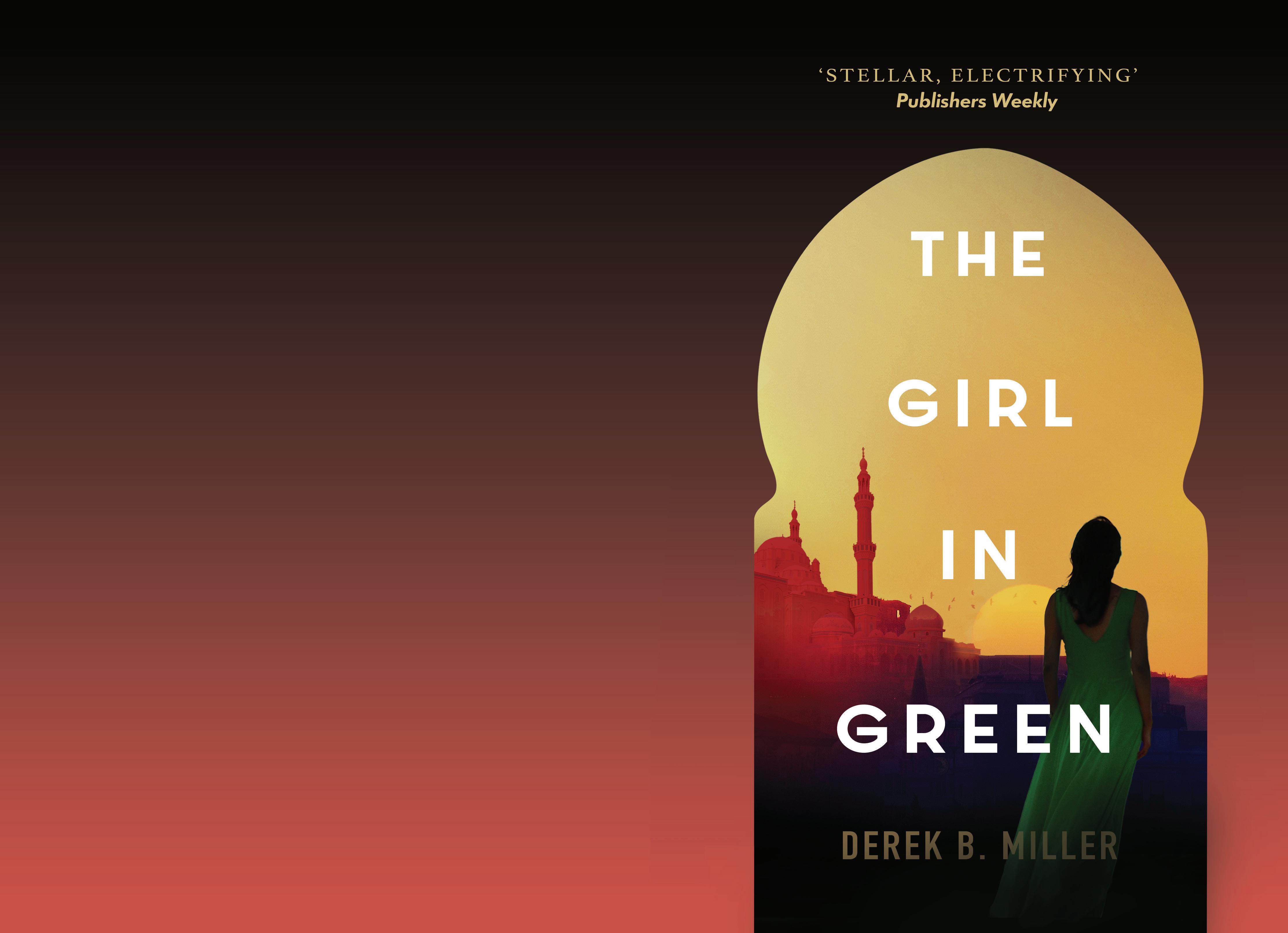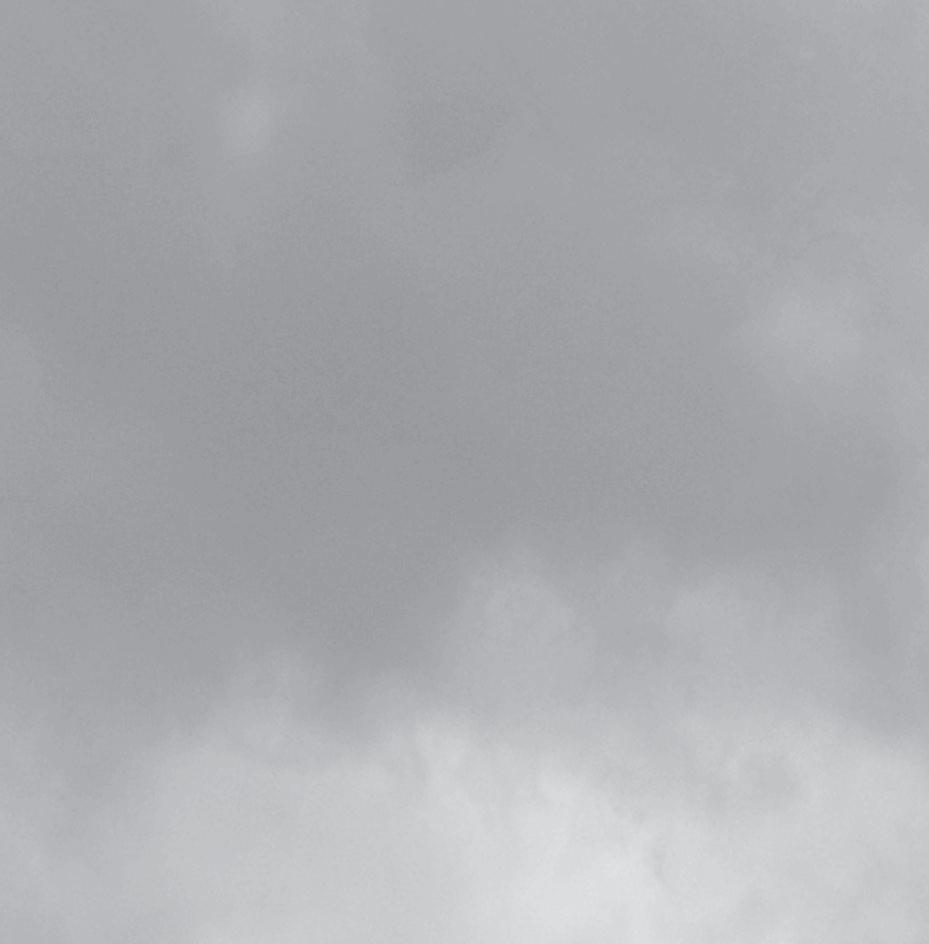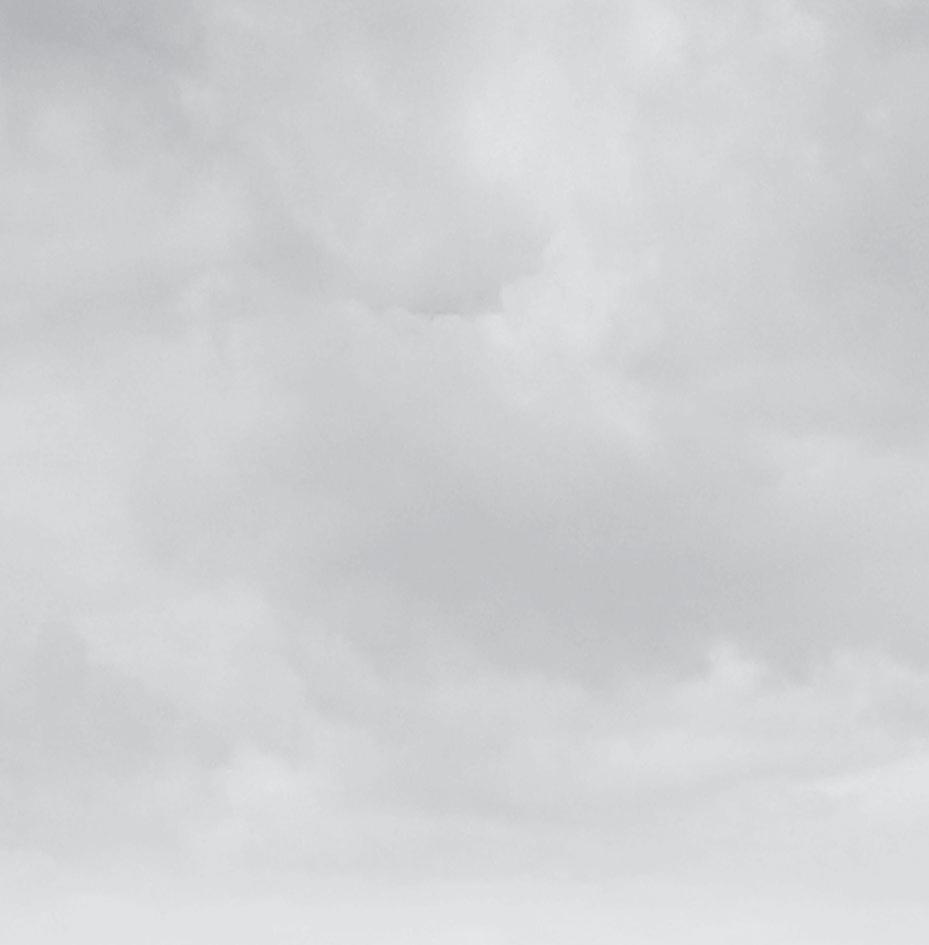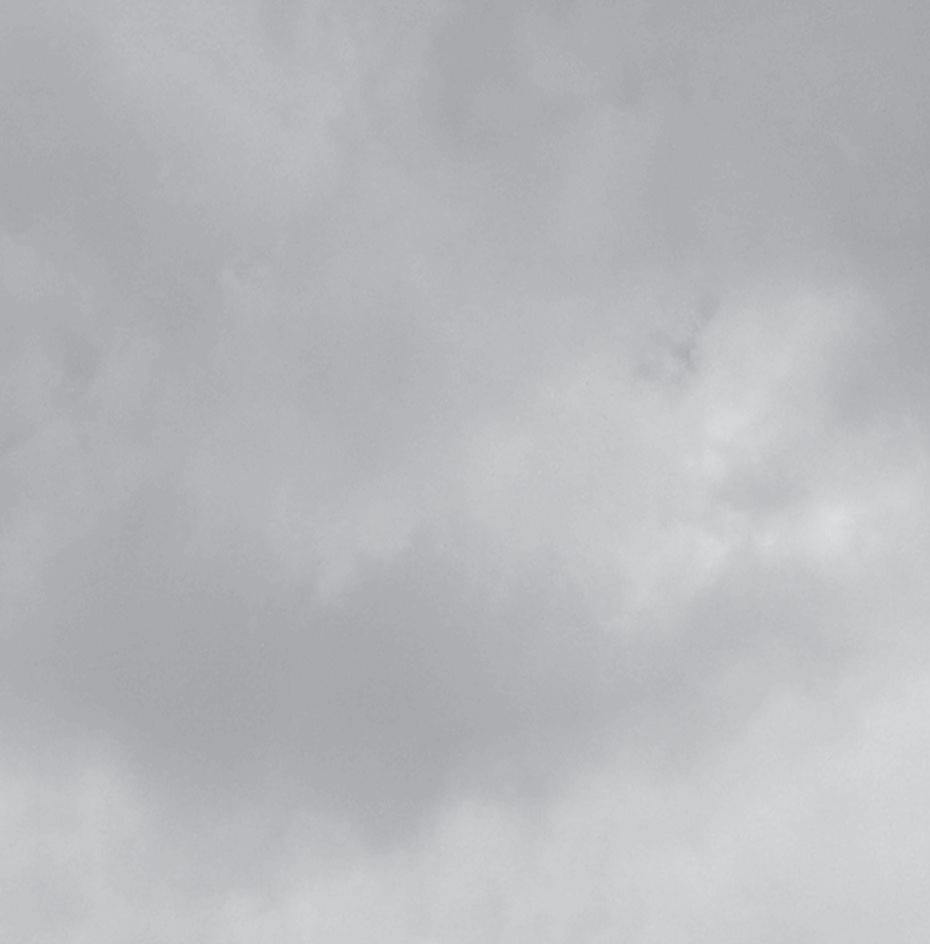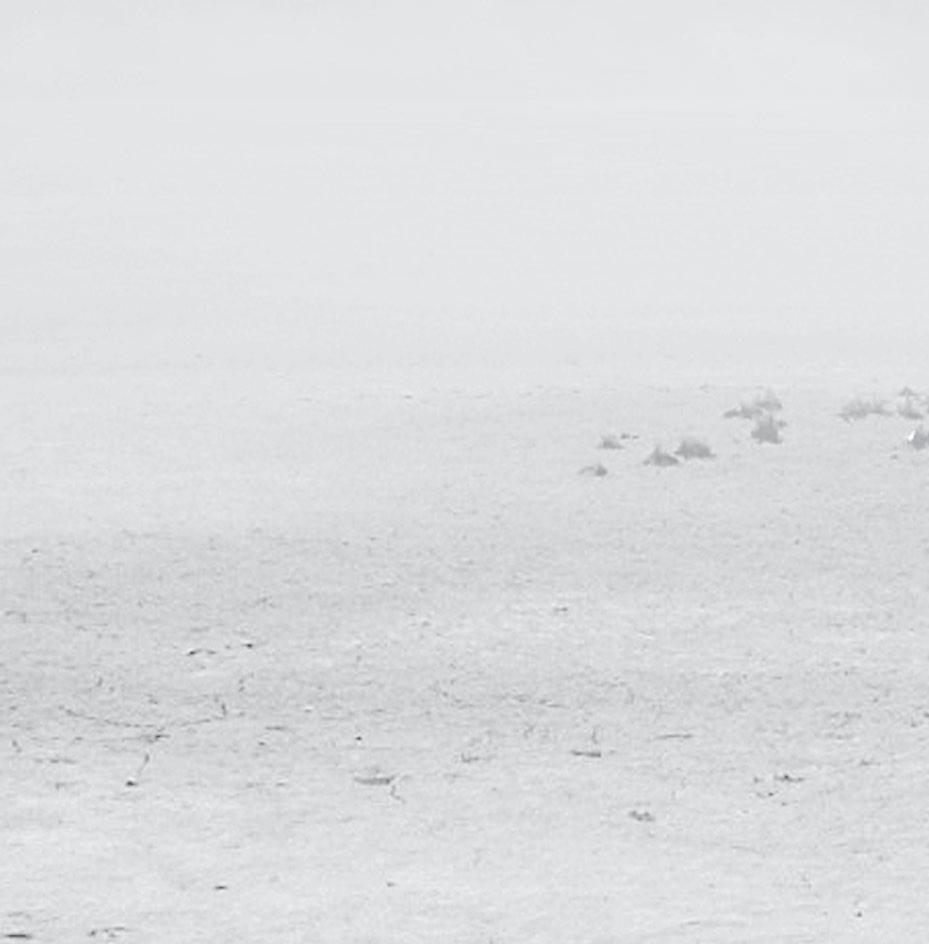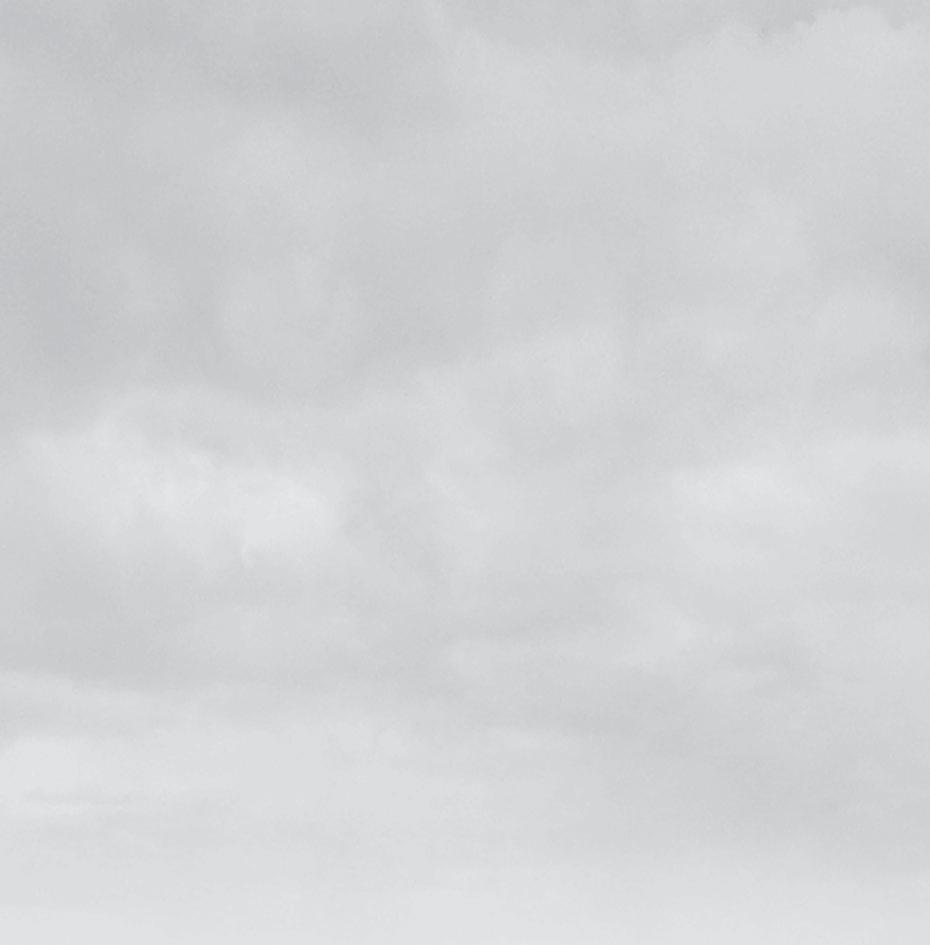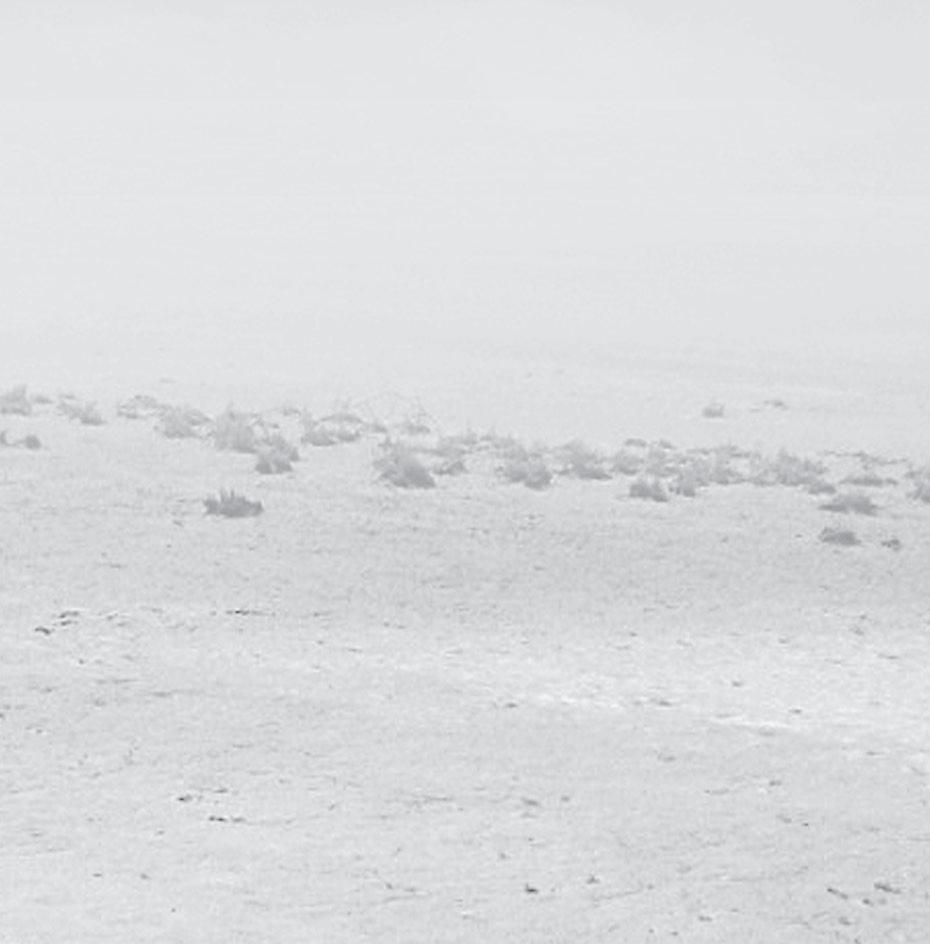PART I AN EARLY SPRING
Arwood Hobbes was bored. Not regular-bored. Not your casual, rainy-day, Cat in the Hat–style bored that arrives with the wet, leaving you with nothing to do. It wasn’t post-fun or pre-excitement bored, either. It was, somehow, different. It felt rare and deliberate, entire and complete, industrial and inescapable. It was the kind of bored that had you backstroking in the green mist of eternity wondering about the big questions without searching for answers. And it wasn’t in short supply, either, because it was being dispensed like candy on Halloween to Arwood and others like him at Checkpoint Zulu, at the rim of the Euphrates valley, in the heart of Iraq, by the world’s largest contractor of boredom: the United States Army.
How long had he been bored? How long was he destined to be bored? Arwood couldn’t even muster the motivation to care as he melted over his machine gun under the hot, hot sun that was pressing down on the sandy sand around him without a raindrop in sight and no one offering to cheer him up.
The M60 machine gun was the perfect height for leaning on. It was probably the perfect height for firing, too, but Arwood had no proof of that because he hadn’t fired the gun since qualifying on it, and there was nothing to aim at because everything was far away, apart from a camel; and while he did point the gun at the camel for a while, it ultimately seemed a mean thing to do, so he stopped. That was eons ago. Nothing fun like that had happened since. Even the camel had gone away.
It wasn’t that Arwood was unfamiliar with being bored and that his resistance was low. After all, Operation Desert Storm — now over — had really been just a month-long air campaign on exposed Iraqi troops, followed by a four-day ground war, which meant there wasn’t a lot of ground war for him or his buddies, or much for people on the ground to actually do. For Arwood, the Gulf War primarily involved him doing a lot of nothing for three months, in the sand, jogging expectantly beside an APC with his gun for a few days, only to be told it was ‘over’. But at least back then there had been a sense that something might happen. There was a sense of possibility.
Not anymore.
Possibility was but a popped balloon for Arwood.
And at the very moment they were all expected to go home, his company drew the shortest of short straws and they’d been deployed here to Checkpoint Zulu, 240 kilometres from the Kuwaiti border. He had no idea why. This time there was nothing to look forward to but peace. Endless, tedious, nondescript, fluffy-white peace.
You could eat a grenade, you really could.
It was into this stagnant vortex of quietude and for-nothingness that a form approached Arwood from across the desert.
Like everything else in Iraq, it came at him sideways.
Arwood didn’t look. He sort of liked not knowing. Perhaps it was a guy wearing sandals who had a beard like Jesus. Or maybe it wasn’t a man at all. Maybe it was the Ghost of Christmas Yet to Come, who was doing his rounds and was there to let Arwood know that — on account of global warming, acid rain, and El Niño, not to mention the global shortage of decent people and the high price of coal — Christmas was going to be cancelled. Whatever it was was getting bigger, which probably meant it was getting closer. It probably wasn’t something dangerous, though; it was approaching from this side of the ceasefire line. But it wasn’t going to be anything good, either. It wasn’t going to be one of
Charlie’s Angels. It wasn’t going to be Daisy Duke. It wasn’t going to be Kelly LeBrock in her blue-and-white panties appearing out of red mist from a doorway. No, it was probably going to be orders.
A different mind, a different person, might have welcomed orders because it would have ushered in ‘change’. Not Arwood. The only thing worse than boredom was labour, and he didn’t want to wash anything, dig anything, move anything, stack anything, fill anything, load anything, unload anything, peel anything, or — and this was critical — smell anything awful. Given that he was twenty-two and a private, rather than, say, fifty and a nuclear physicist, all these things were on the shortlist of the possible.
No, he wasn’t going to look up. He would cherish the uncertainty for as long as he could.
Which fate had decided would end right … about … now.
‘Want a cigarette?’ asked a man who was now man-sized and to his right.
The man stood next to Arwood’s sandbags. Arwood considered them his sandbags, not so much because he was manning a machine gun behind them, as because he was the one who had filled them.
Arwood accepted the cigarette by opening his mouth. The man placed it in and lit it. Arwood inhaled, grateful only that it gave him a pretext to keep breathing.
‘I’m Thomas Benton,’ the man said.
‘Uh-huh.’
‘What’s your name?’
‘Arwood Hobbes.’
‘Hobbes. Interesting name to take into a war zone.’
‘Why?’
‘No reason. Where are you from?’
‘America.’
‘Yes, I figured, given the uniform. Any place special?’
‘Never felt like it.’
‘I’m from a village in Cornwall,’ Benton offered.
‘I don’t know where that is.’
‘Cornwall is in England.’
‘That’s overseas, right?’
‘Yes.’
Thomas Benton squatted down behind Arwood’s sandbags because it was cool and shady there. Benton looked across the desert to the still town a kilometre and a half away.
‘You’re a journalist?’
‘Yes. The Times.’
Arwood did not move from his resting position. ‘When is this war gonna end?’
‘What?’
‘The war.’
‘It did. The war is over. This is the peace. Now the lawyers are drafting the UN permanent-ceasefire resolution.’
‘We’re waiting for paperwork?’
‘It’s the Western way of war. Even Hitler filed his paperwork. Without it we become confused. What’s your job?’
‘I’m maintaining a vigilant perimeter.’
‘Safwan,’ Benton said, ‘if you’re curious, is way back there. That’s where your general, Stormin’ Norman, met the Iraqi high command. It is also where he made the mistake of letting them fly helicopters, which is what they are using to kill everyone connected to the uprisings down south and up north. It’s a bloodbath.’
‘I thought that was Safwan,’ Arwood said, not bothering to motion to the town at the end of his machine gun.
‘That’s Samawah.’
‘When do I get to go home?’
‘The Americans are the ones sticking around the longest, though some of you shipped out on the seventeenth. It could be a while.’
Arwood finally moved his head by shaking it. ‘It’s not fair that we
have to sit around here like the Breakfast Club.’
Benton shrugged and wiped his face with a red bandana. He was not smoking. He had eaten something in the morning that disagreed with him, and he’d opted not to push his luck further with a cigarette.
‘It might not be calm for long. You should try and enjoy it.’
Arwood perked up. ‘What do you mean?’
‘Doesn’t your commanding officer explain all this to you?’
‘You mean Harvey?’
‘I don’t know his name.’
‘Lieutenant Harvey Morgan. No, he doesn’t explain anything. He’s full of shit, and never makes sense because he keeps reading quotes from the government, and they speak in riddles. What do you mean it won’t be calm for long?’
‘The Iraqi civil war. It’ll have to get here eventually. You see that green flag over there? On top of that onion-shaped water tower?’ Benton pointed to a tower in the middle of the town.
‘Yeah. If you watch it really, really closely for hours, it sometimes moves,’ Arwood said.
‘It’s a Shiite flag. That means they’ve overthrown the Sunni government in the city. It’s only a matter of time before Saddam sends troops here to change that back.’
‘Uh-huh.’
‘You’re actually in the eye of a storm. You are the American soldier deepest in Iraqi territory. Did you know that?’
‘Why are you here?’ Arwood asked. ‘At my post?’
‘The view, mainly. It’s as close as I can get without crossing the demarcation line. I’m embedded in your company. I’ve been reporting on what’s been happening with your fellows.’
‘Which is nothing.’
‘Well, there was the mass surrender.’
‘Yeah. That was fun.’
Arwood had enjoyed the mass surrender. Once the war reached
its tipping point, all the Iraqi soldiers gave up. A French journalist had reported that Saddam had forbidden his soldiers to wear white underwear lest they use it to surrender. Arwood had wondered about the mechanics of that. Usually you surrender in really dire circumstances, which is not when you want to be taking your pants off.
Arwood had become chatty with the POWs when they flowed to his location in late February. That was much farther south, and before they were deployed here. There was a certain aff ability to the Iraqi conscripts. Sure, they were the enemy and all that, but their accent was endearing, every one of them had a Groucho Marx moustache, and they were incredibly sincere about their desire to give up. There was very little not to like about them once they stopped shooting at you.
‘There’s nothing happening now, though,’ Arwood said.
‘Not here. But there is over there. And the world would like to know what it is. Or at least I’d like to think they would.’
‘Is being English the same as being British?’ Arwood asked.
‘No. England is part of Britain. Which is also made up of Wales and—’
‘So who banned all that music?’
It didn’t connect until now, because Arwood had never met anyone British before, but word had gotten down to the troops that their allies — the British — were banning anti-war music back home, and so a good deal of time was spent ragging on them about it in their absence. On the BBC’s blackout list were:
‘We Gotta Get Out of This Place’, by The Animals; ‘Walk Like an Egyptian’, by The Bangles; ‘Killing Me Softly’, by Roberta Flack; ‘Two Tribes’, by Frankie Goes to Hollywood; ‘War’, by Edwin Starr; and ‘Everybody Wants to Rule the World’, by Tears for Fears.
‘That was you, right?’ Arwood said.
‘It was the BBC.’
‘They really thought a bunch of straight dudes were gonna sing Roberta Flack in the desert?’
‘What you have to understand about the BBC—’
‘So you’re sitting here with me because you want this civil war thing to get started, and you want a front-row seat?’
‘Well, no. That’s not fair,’ Benton said. ‘I do have questions, though. The kind that can only be answered over there,’ he said, pointing to Samawah. ‘Right now, no one knows anything. We’re getting our news from radio broadcasts coming out of Iran and Syria. It’s all ignorance, rumour, and frustration. I’d like to ask them some questions of my own.’
‘Like what?’
‘Like what? Really? Well, like … Did you plan this revolution? Are you getting support from Iran? Who is in charge? What are your aspirations? Do you want to see a whole and stable Iraq, or do you want a new state and to see it carved up along religious and ethnic lines? Or no state at all? Is this the return of the Islamic umma? Can you work with the Sunni after the way you were treated by Saddam? Are you prepared to cooperate with the West? Under what conditions? Are you coordinating with the Kurdish resistance up north? If so, how? Is there a unified command structure? Do you see yourself forming one? How well armed are you? What kind of training—’
‘Yeah, OK, political stuff. I got it.’
‘It’s the future of the Middle East. In fact, it’s the future of the post-Cold War order. In that town, in the ideas of those people, are the first clues about whether this brave new world of ours will maintain the colonially imposed and Cold War–sustained state system, or—’
‘Do Arabs eat ice-cream?’
‘That’s the question burning a hole in your mind?’
‘I have a follow-up.’
‘Yes. They do.’
‘What kind of ice-cream?’
‘The usual stuff. Why?’
‘I want one.’
‘OK,’ said Benton.
‘And I’ve got an idea that I was thinking up while you were talking. You want to report on all that political stuff from that town, right?’
‘I suppose I do, yes.’
‘I want an ice-cream, and you said they probably have one there.’
‘You think it’s a good idea for me to go to the town and get you an ice-cream?’
‘You sort of implied you might be going.’
Benton sat in the sand. He dug grooves in the earth with the heels of his boots. He’d been in the region since 28 February, the day President Bush declared this ‘a victory for the United Nations, for all mankind, for the rule of law, and for what is right’. Benton’s wife, Vanessa, had argued it was not a good day to leave her or their ten-year-old daughter, Charlotte, behind. Given that the war was over, she’d said, there was no good reason to be there, and it was dangerous. He’d said questions remained that no one was asking, because victory is always exciting and therefore wasn’t when people probed for details. He’d said he’d be back in a few weeks. A visit into a rebel-held city — even for a few hours — could justify the cost.
Benton looked across the windless landscape to the listless Shiite fl ag. Something signifi cant had already happened there, and something else was going to. He was sure of it. Saddam had forbidden journalists to enter the country, but so what? He was shy of his fortieth birthday and hadn’t won any prizes. It was impressive
to be at the Times, but he was among the rank and file, and he’d never distinguished himself. A visit to Samawah could change all that.
It was an interesting idea.
There was a downside to the plan, though, and being almost forty rather than in his early twenties, like Arwood, Benton still had some reverence for the wider systems of authority and power that made his journalism possible. You fall out with those, and you’re out. He was talking to Arwood to manipulate the situation, yes, but he was still on the edge about whether to walk the literal mile.
‘I was told not to wander off base, or I’d lose my press credentials,’ he said.
Arwood field-stripped his spent cigarette and flicked the pieces into what should have been wind.
‘If you follow the rules all the time, you don’t really have any press credentials, do you?’
‘Huh,’ said Benton.
‘It is my experience — and I learned this the hard way, believe me — that the trick to getting what you want without getting caught — and this is the important part — is not getting caught.’
‘And how do you do that?’ Benton asked.
‘I just told you. Don’t get caught.’
‘That feels a bit circular.’
Arwood never took his eyes off the distant buildings and the absolute nothing that was happening over in the town. Now that he had the idea of an ice-cream firmly planted in his mind — which was seeping down into his very soul and filling it with strawberries — he could picture swarms of ten-year-olds suddenly bursting into the corner store and tearing open every remaining Popsicle, leaving nothing for him but sticky wrappers. It was a dark image.
‘I have this theory that everything you truly need to know,’ Arwood said, ‘I mean, deep down and for the duration, can be learned from Ferris Bueller’s Day Off. The fact that there was no sequel only
proves that there was nothing left to say. To me, the army is Principal Ed Rooney, and you need to be Ferris.’
‘If I go, you won’t tell anyone?’
‘I’m not paid to keep you in. I’m paid to keep them out.’
‘They don’t have Ben and Jerry’s. Mostly Popsicles. Also they might not have any. There were economic sanctions after Kuwait was invaded, and there’s been a war since. And it could melt by the time I’m back.’
‘I’m prepared for you to take that risk.’
‘Are you sure you’ll be there when I return? I don’t want to get shot as I approach the checkpoint. How’s your eyesight?’
‘Come back the way you came. I’ll be here all day. Same bat time, same bat channel.’
‘I don’t have any money,’ Benton said.
‘No charge, dude.’
‘No, for the ice-cream. I need to buy it. I’m not going to steal an ice-cream, am I?’
‘I … hadn’t considered that,’ said Arwood. ‘You don’t think he’ll be friendly, and give you one?’
‘He might, but it’s presumptuous. I think it’s inappropriate to ask, and if he gives me a gift it’s customary practice that I return the gesture with a gift of my own.’
‘It really is like a whole different place over here, isn’t it?’ Arwood was no longer leaning on the gun. He had perked up like a flower exposed to sunlight at the thought of an ice-cream. ‘I don’t have any money either. What kind of gift?’
‘Something of the same value and significance as an ice-cream, otherwise he’ll feel further in my debt and want to even things out, which is not what we want here,’ Benton said.
‘OK …’ Arwood bent down and pulled a comic book from his rucksack. ‘How about this Amazing Spider-Man #312, Green Goblin versus the Hobgoblin? It’s from 1989, and I paid a buck. It
isn’t current, but the trade is only for an ice-cream, so I think it’s fair. There’s got to be some kid over there who hasn’t read it yet.’
‘I don’t know if they read comic books.’
‘Jesus. How foreign are they?’
‘Fine, give it to me,’ said Benton, who stood up, dusted himself off, and put the comic book in his own rucksack, beside his camera and incidentals.
‘So you’re going?’
‘It’s half-twelve now …’
‘Huh?’
‘It’s twelve-thirty now,’ Benton translated, ‘and I figure I can walk there in half an hour, spend about three hours or so interviewing, and be back by four o’clock, which is well before dark. You’re sure you’ll still be here?’
‘I’m on until eighteen hundred.’
‘I really don’t want to get shot coming back.’
‘I will not let anything happen to you. I promise.’
‘All right then. Audaces fortuna iuvat, right?’ said Benton.
‘I don’t know about that, but Ferris got Mia Sara.’
2
Benton drank from a bottle of water as he walked toward Samawah under the blue dome of heaven. His feet were hot. He wore cheap socks that were woven with nylon and polyester. He knew better, but had still done nothing about it when it came time to pack. They couldn’t breathe as he stepped from rock to rock across the broken earth toward the squat city and its muted people. This always put him in a mood.
Closer, he found the small city unremarkable. He might have been in Jordan, or the West Bank, or Bahrain as he looked at the flat roofs and the canopy of satellite dishes made dirty from the sand and the winds and the absence of rain or the social pressure to clean them. Around the city was its litter — the discarded refrigerators and tyres, the bed frames and canvas bags. There was no topsoil. There was surely a proper reason for this, but Benton imagined that too many feet had walked here for too long in search of too much.
He approached a derelict oil truck in a wide and unused parking zone. Someone had painted, in giant white letters, ‘We want Fredum. Bleads help Iraq peple.’
Benton put the empty bottle of water back into his satchel, intending to throw it in a bin later.
He checked his watch. Dhuhr prayer was around 11.30 a.m., and Asr prayer shouldn’t be until around three-ish. He figured he had a workable window to get oriented and at least conduct a few discussions.
Towns have eyes in the Middle East. This one, however, felt blind — as though it were resting in the midday sun in preparation for a long stretch of work in the cooling night yet to come.
A boy appeared. He was thin, about twelve years old, and carrying a platter of glasses of tea over his shoulder like a French waiter. The boy wore sandals and had thick black hair. He was unhurried, and focussed on his task of delivering tea and lunch to the shopkeepers.
When the boy saw Benton, he stopped and fixed himself to the earth, paralysed. Eyes wide, he was motionless until an inner force shot into his limbs, making him jerk erratically. He twitched his head right and left and back to Benton, as though Benton might issue instructions that would end his indecision. Benton could hear the glasses rattle on the thin, silver platter as they amplifi ed the boy’s vibrations and started dancing to the arrhythmia of his heart. Soon enough, the cups could not keep up. One by one, the cups fell, smashing themselves on the hard earth, and the sweet water poured from the platter onto the boy’s feet, scalding his exposed toes and forcing the boy to join in the dance he had inadvertently started.
Hopping in pain, the boy dropped the platter, and he turned and ran as fast as he could, back the way he had come.
Not loudly enough, not by a long shot, Benton called out, ‘I’m not going to hurt you. I promise.’
But the promise never reached the boy’s ears, and in a moment he was gone.
Alone again, Benton trudged toward the first buildings and into a narrow alley between them. It was shadier between the buildings, and cooler. He paused to scratch one foot with the other through his leather boots. It was unsatisfying. He’d have to take the boot off, and perhaps the sock as well.
Kneeling with his shoe untied, Benton heard a rumbling ahead of
him, through the mouth of the light and narrow alley. It sounded like water. It was an impossible notion, but he half expected a tidal wave to come bursting into the passageway, a crest of salty white foam gushing around him to his waist, to flood his boots and cool his feet.
It was only when they were almost upon him that he understood the sound as a wave of human voices, foreign and excited.
His shoe tied, he stood and looked back, unconvinced by either choice of staying or going. The choice was made for him as he deliberated. They poured in as a flood to a wadi. They were silhouetted by the bright light of the Iraqi sun, and in that moment they overtook him and drowned him. Hands gripped him, and he shielded his face as people started pulling him, surrounding him, and pushing him out into the city. They called and yelled in Arabic. His bag was pulled from his shoulder, and he was no longer sure of anything at all.
He shouted for them to wait, but his voice failed him for the second time in Samawah. There were too many people, and too much emotion. When his head struck something hard, he fell to the ground.
Benton did not pass out. He was, however, bloodied and incapacitated. Two men were holding him up. They smelled bad. Their shirts were made of cotton and were sweaty. He couldn’t see their faces. There was blood in his eyes. It came from his head. He raised a hand to find the source. He was pulled into a building and then pushed into a chair. There was a voice.
‘American?’
Benton couldn’t see who’d asked the question. The man was standing too close. The smell of all the people was overpowering. The sunlight was poking through the spaces around the man’s face and through the shoulders of those around him.
‘American?’ the man said.
‘I’m British,’ Benton said.
‘American?’
‘British, for Christ’s sake.’
‘English?’
‘Yes, yes. I can’t breathe.’
The dark face in front of him yelled something in Arabic and then stood up, pushing the other people back. He shushed the people around him, bringing silence, order, and calm.
He handed Benton a cloth and a bottle of water.
‘Thank you,’ Benton said.
‘Who are you?’
‘I’m Thomas Benton. I’m a journalist with the Times. I’m here to understand what’s happened and to learn what you’re all going to do next. I’m … I’m hurt. I don’t want to upset anyone or get anyone else hurt. Can we talk?’
There was mumbling and then Benton said, ‘Do you speak English?’
‘Yes, yes. Everyone speaks English. Everyone-everyone. You are not American? You are not here to help us?’
‘No. I’m a journalist.’
In the quiet and uninterrupted moment that followed, Benton was able to look around and see where he was.
He wasn’t in a cave dwelling or an Iraqi torture chamber. He wasn’t even in a boxy apartment with barred windows and a dubbed Western television set playing in the background. He was in a pharmacy — a pharmacy that stocked L’Oréal hair products and Halls lozenges, and was having a twenty per cent–off sale on reading glasses if you used 1.50 magnification and didn’t mind wearing orange.
The man who had been too close stood back and pulled a white plastic chair across the concrete floor. Sitting, he rubbed his face with a tissue and placed it in his jacket pocket.
‘What is going to happen to Saddam?’ the man said.
‘I beg your pardon?’ Benton said, wiping his own face with his red bandana.
‘Saddam. We need to know what you are going to do with Saddam. What is our future?’
‘I came here to ask you the same question.’
The man shook his head. No. This made no sense to him.
‘You have an army. Big army. You drive Saddam out of Kuwait. OK. Now what? You take Saddam away?’
‘Well … no.’
‘Why not?’
‘The international coalition was formed to restore Kuwait and secure the borders.’
‘OK, OK, but the problem is Saddam. We fought a war with Iran, then Kuwait, then America. Always war because of Saddam. So … now it’s time to get rid of Saddam, yes?’
‘Isn’t that what you’re doing?’ Benton asked. He felt a cut on his head. ‘Why did someone hit me?’
‘No, no. Sorry, your head hit the wall. People were very excited to get news. You are a journalist. So … you have news.’
‘No. I’m here to get the news from you, and report it in Britain.’
‘They don’t need the news. We need the news. Are you going to get rid of Saddam?’
‘It’s our understanding,’ Benton tried to explain, ‘that you’re having a revolution. That you’re getting rid of Saddam. I’m here to understand your plans. You’ve already taken the city. There’s a Shiite flag on the water tank. Are you being supported by Iran? Are you hoping—’
Another man, wearing the white coat of a pharmacist, interjected. Benton didn’t understand what he said, but the crowd started to disperse, and the man he’d been speaking with nodded, stood up from his chair, tapped the arms of a few people, and then walked out.
The pharmacist looked at Benton’s wound. ‘I told them we were not being good hosts, that you need some help first, and that we can discuss this all over some food and tea. Clearly, you want to talk to us, and we want to talk to you. We should do it properly. Times are very delicate. Very delicate. I can tell you this, though: the answers to the questions you are asking don’t exist yet. I was educated as a chemist. In chemistry, the answers are out there, waiting to be found. But in life, in politics, in war, the answers aren’t there yet. Your whole profession has a very strange theory in the middle.’
‘My head hurts,’ said Benton, not only feeling a throbbing in his head but starting to hear it, too.
‘I’ll get you some aspirin, unless you’re allergic. The Republican Guard took most of it. We have a few left. I’d like to put a bandage on you, too.’
‘Yes. Fine. Thank you.’
The pharmacist shooed people out of the shop on his way to a small cabinet. He used a tiny key to unlock it, and removed a white plastic bottle.
‘How are you?’ Benton asked.
‘How am I?’ he said.
‘Yes. How are you?’
‘Worried. Very, very worried. But thank you for asking.’
The pharmacist was pressing down on the childproof cap when he stopped and looked at Benton. They could both hear it. It was as if the air were being sucked from the room and pushed back in, quickly and repeatedly.
‘What is that?’ Benton asked.
Arwood had always liked helicopters. When he was a little boy, he’d make them out of Lego with his uncle, who would come over sometimes when his father was ‘out’ and his mother was indisposed. It has always been one of his fondest and quietest memories from childhood.
When Arwood was ten, they moved on to models with glue and paint. Models worked for them as a shared activity, because it set them on a common task and didn’t require much talk about why they were together instead of Arwood being with his parents. The less they talked, the more helicopters and other machines they would build. They liked to look up the specifications of the aircraft from a dated copy of Jane’s World Air Forces that Uncle Maxwell had bought at a library sale.
Now he was twenty-two years old, and from this distance it actually looked like a model. It was about the same size. He felt a thrill at fi rst as the massive gunship fl oated over the ridge and approached the city. The Mi-24 was a primary component of Iraq’s order of battle, and had been used to devastating effect only three years earlier in the war against Iran. It was a Soviet-built brute of a vehicle, with all the charmless industrial hostility that the Cold War could create. It had twin cockpits, one above and behind the other, both encased in glass. To the sides were two massive wings with a twenty-one-foot wingspan. At the front was a 12.7mm Gatling gun with a payload of some 1,500 rounds of ammunition.
Under the wings were rocket launchers and mine-dispenser pods. And backing it up, at its six o’clock, was an Aérospatiale Gazelle helicopter, built in France. Together they formed a hunter-killer team.
Just like his models.
However, the angle of attack proved to Arwood that, unlike in Iran or in his basement, this team was not going to be used for war. It was going to kill people — regular, everyday, soft people.
Even at the pinnacle of his earlier boredom, Arwood hadn’t been more than a quarter mile away from the base, and had had a radio. Looking back across the worthless space he’d been defending, he could see Lieutenant Harvey Morgan running down the line, fastening his helmet the way most of the enlisted men didn’t, because — in the complex language of gestural soldier-speak — it meant I’m a rule-following pussy rather than someone who chewed cigars and shot gooks and Nazis.
‘Look alive, dimwits,’ he shouted.
It did not take long, however, for everyone to realise that the Iraqis weren’t heading toward them. The helicopters took their positions over the city. And then, with an experienced and pitiless hand, they opened fire on the hospital.
The Mi-24 launched two rockets from under its left wing with perfect military precision, blowing in the sides of the hospital, and killing the injured and infirm and those who had taken the Hippocratic oath to help them. Their work done, the air team moved out toward the train tracks, with the intention of killing each and every man, woman, and child where a makeshift refugee camp had been set up and maintained by those fleeing other towns.
Arwood radioed his commanding officer and asked, ‘What the fuck, Lieutenant?’
Off to his right, an Apache helicopter was in the air and taking a defensive position over Checkpoint Zulu.
Arwood cocked and trained his weapon. There was nothing to point at except north.
Behind him, Arwood’s platoon ran the short distance to his position — the deepest legal position into Iraq — and, once there, started shouting ideas.
‘Let’s take it out!’ was the first big idea. It was Corporal Ben Ford. He was from Tampa, Florida, looked like a bulldog, and was almost as refined. However, he was not always wrong. ‘Come on, man, let’s waste the motherfuckers!’
Arwood took one last look down his sights to confirm that there was absolutely nothing whatsoever approaching the checkpoint, and then turned to see Ford appeal to the lieutenant, as though each of them were in the helicopter with a finger on the rocket launcher and the choice was theirs.
Whoever did have his finger on that trigger could have taken down the Mi-24 with a gentle squeeze. God only knows what that guy was thinking. The angels and devils must have been going nuts on his shoulders trying to separate their messages.
Arwood had heard that Iraqis and Iranians used to have helicopter dogfights. They were the only nations in history that did. It could be done. And how hard could it be? They hovered there like bottles on a cloud, waiting to be knocked down.
Lieutenant Harvey Morgan’s West Point education was in full puff that evening, though. He did not order them to take out the Mi-24. He not only knew what his orders were, but somehow — against the philosophy, purpose, tradition, expectation, and standard operating procedures of the army — he even knew why. So the second big idea was to not take it out. Proof of the worthiness of this idea came from paperwork. He had loads of it. Arwood hated paperwork.
Morgan had a quote from the president. Arwood hated quotes from the president.
Morgan considered the words of the president definitive. Arwood
considered the bullets blowing out the brains of children definitive.
Morgan considered the law to be the foundations of justice Arwood considered justice to be the foundations of the law.
Morgan considered Arwood’s opinions to be irrelevant. So did Arwood; they did have that in common.
Morgan snapped the paper into shape, in a gesture smooth enough to demonstrate how much time he’d spent around the stuff.
A group of other guys gathered around. They wanted to hear this, too. One of them was an Arab-American soldier named Rob Husseini who’d been born in Maryland to Moroccan parents. He was twenty-three, and was the only one there who understood Arabic. The Arabic he understood best concerned food and events that take place in kitchens. The Arabic he understood least concerned law, justice, and war. The topics he understood least in any language were law, justice, and war.
While Rob didn’t understand a great deal of what he heard from the refugees and POWs, he understood enough to make him the most miserable one there.
Morgan started reading aloud some of the official puff written by the State Department, which was boring until he reached this part: ‘… no prospect of US involvement in Iraq’s internal conflict unless senior US political officials decide it threatens the coalition’s military forces arrayed in defensive positions along a ceasefire line in Iraq south of the Euphrates River’.
‘That,’ said Morgan, as though he had proved something, ‘was the State Department. And those forces are us.’
Arwood lit a cigarette. ‘Those forces be we,’ he said.
‘What?’
‘We be da force,’ Arwood said.
Rob shook his head. ‘Word is that the Iraqis are dropping leaflets from the helicopters, telling the Shiites that if they don’t stop the rebellion they’ll drop chemical weapons on them.’
Morgan ignored him. ‘France says the rebellion is Iraq’s problem to solve. Saudi Arabia said they won’t touch this. Morocco. Egypt. Canada. The Brits. This is from the Washington Post yesterday,’ he said, flipping to another piece of paper. ‘“There is no stomach in this administration, in the coalition, or in the region to undertake the kind of military involvement that would be necessary to aid the rebel groups in toppling the Saddam government. Such involvement in the internal aff airs of another nation” — I’m quoting here, people — “would have enormous, enormous implications for what we are trying to do in the region overall and would, in addition, label the rebels ‘lackeys of the United States’, making their success more difficult.” The guy then says, “We don’t want our fi ngerprints on anyone involved in the rebellions,” unquote. More or less.’
Morgan looked up. ‘That’s coming from Dick Cheney, our secretary of defense. If America gets involved, we undermine the integrity of the revolution.’
‘Why?’ said Rob Husseini.
‘Why what?’ said Harvey.
‘Why would they hate us if we helped them?’
‘Because Arabs always have conspiracy theories about the West being involved.’
‘But we would be involved. And it wouldn’t be a conspiracy. They’re asking for help.’
‘They don’t really want it. They think they want it. What they really want, even more, is a reason to blame us. So we need to avoid giving them one.’
‘Aren’t we giving them one by not helping?’
‘No. We’re staying out of their business.’
‘You’re not making any sense, Lieutenant.’
‘It’s not me, it’s Dick Cheney. The State Department believes that if we help these people now, they will hate us later.’
‘Right.’
‘And if we leave them alone to die, we’ll be on better terms with them in the long run.’
‘Got it.’
Arwood looked at Rob, who turned to watch the helicopters launch rockets at a tent community.
‘This sucks,’ said Rob. ‘We should help these people, or get the fuck out of here.’
‘I second that,’ Ben said.
‘I third that,’ Arwood said.
‘No one asked either of you. And you can’t third something.’
‘And yet,’ Arwood said, ‘it happened.’
A kid Arwood didn’t know came up, saluted the lieutenant, and said, ‘Refugees are coming in to Checkpoints Alfa and Eagle. And there are Iraqi ground forces coming from the north.’
‘Refugees are coming here, too,’ Arwood said, looking across the desert at people on the move, and at troops emerging from Ural troop transports. ‘Looks like if we don’t go to them, the civilians are gonna come to us.’
Seeing motion in the distance, he manned his weapon again. The rear sight of the M60 created a tall and narrow rectangle that was cut through the middle with a pin for a front sight. Through his sight, they came toward him as though framed by a doorway they would never enter.
Some ran. Some were walking wounded, and hobbled. Others couldn’t walk at all, and were carried by those who would rather risk death than leave them behind.
Morgan used binoculars to scan the approaching refugees.
‘We’re to receive refugees and patch them up. We take POWs. We do not fire unless fired upon. And then we send them back when we get the pull-out order.’
They came for hours. Arwood had never seen people look like this. He had never seen terror on people’s faces before.
Because he was one of the first people they saw, he was among the first ones they’d talk to. It was shocking to him how many of them spoke English. The whole country seemed to be bilingual.
One man carried a dead eighteen-month-old baby. Whoever had shot it in the chest had done so at such close range that there were powder burns on its T-shirt and nappy. It was limp, and looked like rubber.
The situation was chaotic. Their lines were being overrun by people — hundreds at first, and thousands later — who gathered around the remnants of the oil refi nery inside the American perimeter. Young soldiers started handing out their own Meals, Ready-to-Eat, and people ate like they had never seen food.
Not all were refugees. Some were Iraqi conscripts and Republican Guard soldiers who’d surrendered. There were six of them behind Arwood, at a tent, and under guard. One was shirtless, wearing boots and beige standard-issue trousers. He was unshaven, and his head was pressed to the ground in either prayer or despondency or fatigue. Whatever it was, Arwood had no trouble interrupting him.
‘Ben, watch this thing for me,’ he said, and then walked away from the machine gun to tap the guy on his shoulder.
The Arab looked up, tears in his eyes.
‘What the hell have you got to complain about?’ Arwood said. ‘Here you are, all safe and cozy, about to get some food and water, protected by all kinds of laws and nice guys looking out for your welfare. You should be the happiest sonofabitch in the Middle East. Meanwhile,’ Arwood said, and then flicked his butt into the cloudless sky, ‘I’ve been meaning to ask one of you fuckwits a question that’s been on my mind: What the hell is wrong with you people? I mean, seriously. Who shoots a baby? Who does that? Did you do that? Was that your idea? Do you think there’s a God that wants you to shoot a
baby? What’s going on over there? What’s going on in your heads?’
‘Saddam. He said the city is unclean. He is giving us 250 dinars to kill babies and women, and up to five thousand dinars for adult males. He said we can kill up to one hundred a day. That’s the limit.’ Then he said something in Arabic with the word ‘Allah’ in it, and that was when Arwood switched off.
‘Ben,’ he said, hopping up over the sandbags, back to his position. ‘I’ve got to do something. I need you to cover for me. I could be a few hours.’
‘What could you possibly need to do?’ Ben said.
‘There’s a guy — an English guy. He went into town. He went there to take pictures before the attack. It was sort of my idea. I’ve got to go look for him.’
‘Are you out of your mind?’
‘Look, man, I’ll zip over, pick him up, and zip out. It’s Samawah. It’s not like it’s Moscow or anything.’
‘You’ll be AWOL.’
‘Honour before orders.’
‘You’d better haul ass.’
‘Save Ferris.’
